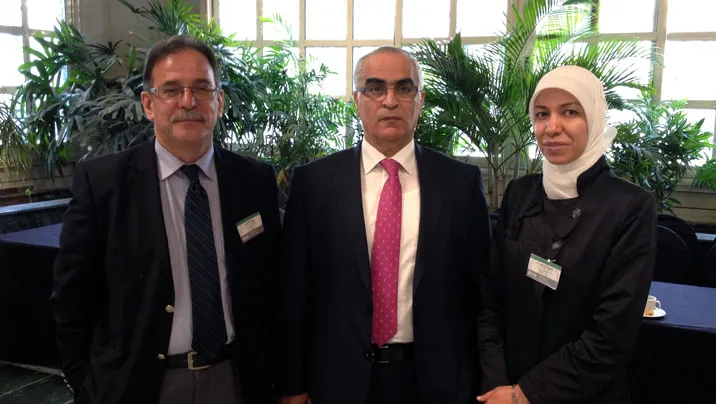Global health diplomacy refers to the negotiation processes that shape and manage the global policy environment for health. Increasingly, the negotiation processes are not only conducted between accredited diplomats representing nation states, but include other major players in the global arena. As health moves beyond its purely technical realm to become an ever more critical element in foreign policy, security policy and trade agreements, new skill sets are needed to negotiate global regimes and international agreements and treaties, and to maintain relations with a wide range of actors. Global health diplomacy focuses on those health issues that cross national boundaries. It is an expression of smart sovereignty through which states exercise their policymaking sovereignty more effectively and intelligently by pooling their efforts.
In response to heightened demand, WHO hosted three high-level seminars since 2012, featuring experts on regional politics, global health policy, and diplomacy to facilitate discussion, information exchange, and analysis regarding the linkages between health and foreign policy globally and in the Eastern Mediterranean region. More than 100 senior government officials from ministries of health and foreign affairs, as well as, representatives of permanent missions at the United Nations in Geneva, parliamentarians and heads of diplomatic institutes have benefited from these three seminars, focusing on contemporary concepts, key global health issues, with special considerations to emerging health concerns, regional security, interaction between health and trade and sustainable development priorities.
This year’s seminar is unique with 2015 featuring the key date for the post-2015 development agenda and the sustainable development goals, marking the tenth anniversary of the World Health Organization Framework Convention on Tobacco Control, responding to the implications of the Ebola crisis in West Africa and the need to strengthen health security as an integral component of national security.
The seminar will host a distinguished panel of high-level speakers, including ambassadors, parliamantarians, and senior health officials, who will: 1) inform debate and dialogue on raising health within foreign policy and other sectors; 2) explore the perspectives that have informed diplomacy in the Eastern Mediterranean; 3) address what it means for the region to be engaged in health diplomacy efforts, and 4) examine how these efforts reflect on achievement of public health strategic priorities in the region. The main objectives are:
Objectives
1. To strengthen capacity of representatives of Member States of the Eastern Mediterranean Region to understand, act upon and positively influence diplomatic and policy outreach to health issues of highest priority and relevance to the region.
2. To integrate concepts and approaches of health diplomacy within foreign policy platforms to address critical health challenges that cross domestic and regional boundaries and that are global in nature.
Senior officials from ministries of foreign affairs and health, permanent missions at the United Nations in Geneva and New York, as well as Embassies in Cairo, Ambassadors, deans of diplomatic institutes, heads of parliamentary health committees, regional public health institutes, regional members of the WHO Executive Board, among other stakeholders.
